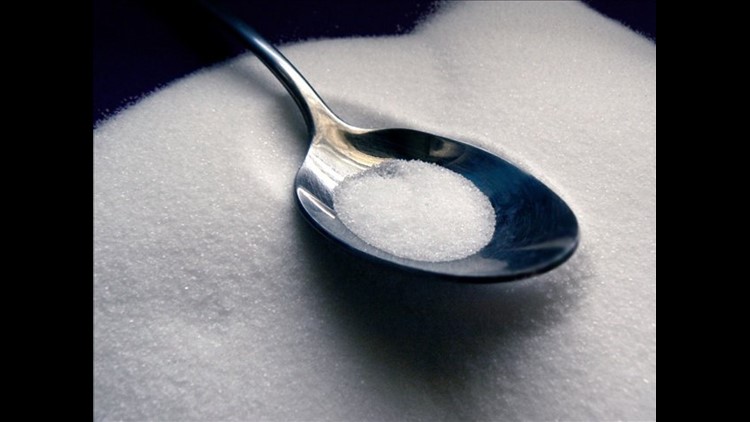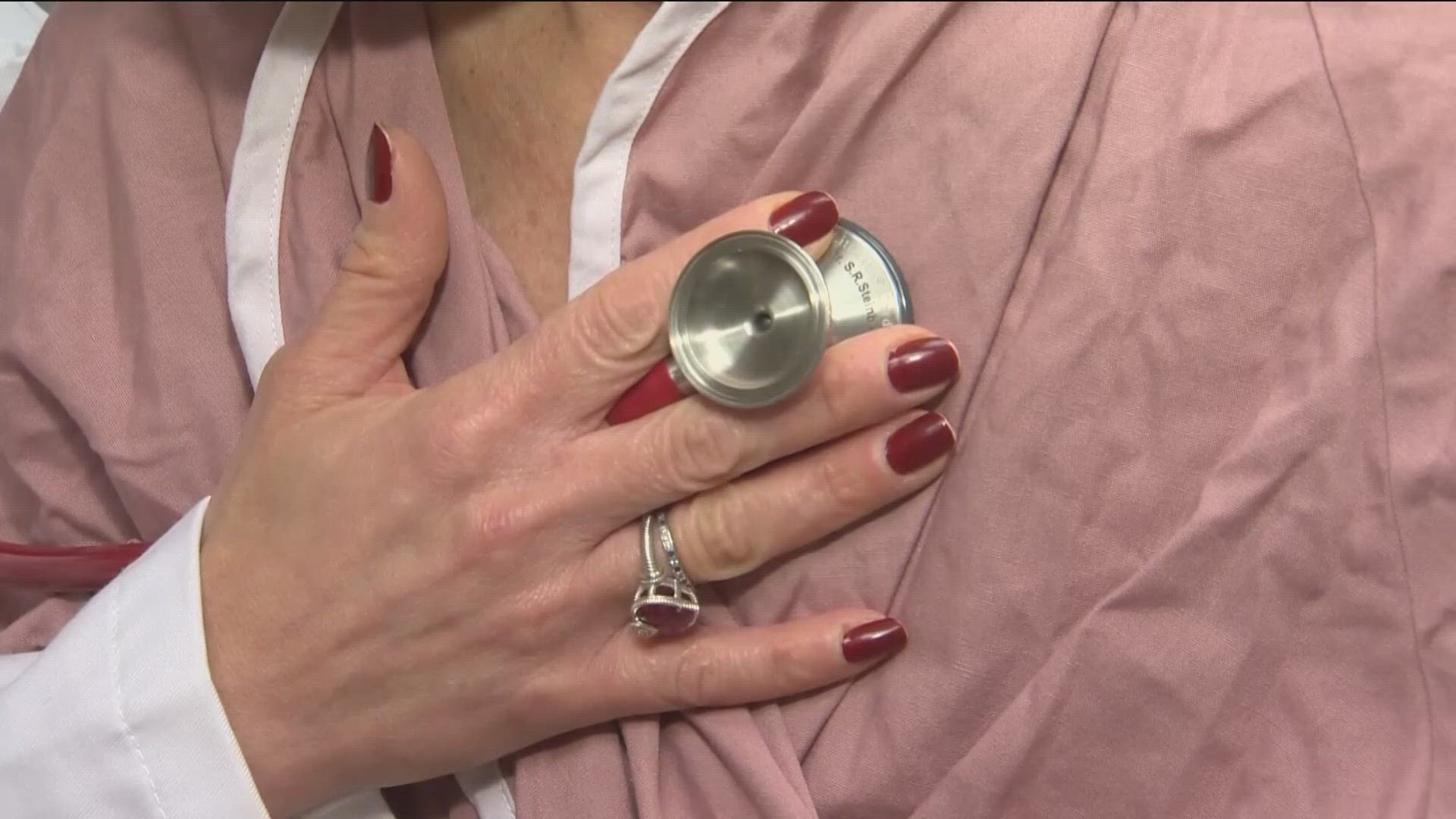(CNN) — Sweet tooth? You’re not alone. Sugary foods and beverages are delicious. But we’ve also learned they can be highly addictive and, too much of them, can take a serious toll on our health.
Today some of our favorite drinks, gum, baked goods, and candy are available in sugar-free versions. But that got me thinking… are sugar substitutes any better for you than the real thing? I was not alone on this issue. I’ve received dozens of tweets and emails wondering if fake sugar can harm us, or worse, crave more food!
For some answers I turned to internist and physician nutrition specialist, Dr. Melina Jampolis. Her specialty is practiced by only 200 physicians in the United States. She focuses exclusively on nutrition for weight loss and disease prevention and treatment.
CNN: First of all — are all sugar substitutes pretty much the same?
Dr. Jampolis: It is important to understand that there are both natural and artificial substitutes. Most of the concerns people have are around the five FDA-approved artificial sweeteners: Acesulfame potassium (Sunett, Sweet One), Aspartame (Equal, NutraSweet), Neotame, Saccharin (SugarTwin, Sweet’N Low), and Sucralose (Splenda).
But it is important to point out that these sweeteners are all different. They all have different chemical make-ups and they are handled differently in the body – some are completely broken down, some are not. So you can’t just lump them into one thing if you do have concerns about them.
CNN: How are natural sweeteners — like stevia – different? And are they a healthier option compared to artificial sweeteners?
Dr. Jampolis: Stevia is a natural sweetener from South America that has no calories but is 250 times sweeter than sugar. It has seen a huge surge in popularity since its clearance as GRAS (generally regarded as safe) as a food additive in 2008. Stevia has been proven safe and effective by the FDA. Many nutrition experts prefer it since it is natural, but just because something is natural does not always mean that it is safer. I tell my patients that if you prefer the taste of a natural sweetener, then I think it is a very good option but there isn’t evidence that it is a healthier option compared to artificial sweeteners.
CNN: There is always a lot of buzz linking sugar substitutes and cancer. Is there any reason for people to be worried?
Dr. Jampolis: The studies that I have seen, and the studies the National Cancer Institute have reviewed, all point to the fact that in humans there is no compelling evidence. It is really more of just a few animal studies. In the 1960s there was a study of saccharin in rats, which found an increase in bladder cancer and caused a great deal of fear. However, it was later found that the mechanism by which it caused cancer in rats was not even possible in humans. Animal studies do not always reflect human response and saccharin is a great example of this. Aspartame is also often anecdotally linked to brain disorders based on small animal studies, but human studies have not shown an association. I think that at this point, we don’t have convincing research. It is more hype and really just a little bit blown out of proportion.
CNN: I’ve also heard that sugar-free foods and drinks can make you crave more food and calories. It sort of tricks your body. Any truth to that?
Dr. Jampolis: This is an interesting question which has not been answered definitely. The taste of sweet does cause the release of insulin, which lowers blood sugar , and if carbohydrates are not consumed, it causes a drop in blood sugar which triggers hunger and cravings for sugar. So if an artificial sweetener is consumed alone, it could theoretically increase hunger. However in the context of a meal, it is not known if it causes an increase in hunger and if so, it’s not known if this outweighs the decrease in calories consumed. We know that some artificial sweeteners do cause a release of insulin which could drop your blood sugar and make you crave more sugar actually. And they also seem to trigger the same addition like pathways in the brain.
CNN: Okay – so would I be better off eating one small piece of candy made with real sugar, or a larger portion that is sugar-free?
Dr. Jampolis: Honestly I don’t think there is a correct answer. In my opinion, if you consume it after a meal (not on an empty stomach), I would go by preference. If you really enjoy a piece of chocolate with real sugar, having a small amount is fine. If you like the taste of sugar-free cherry candy, that’s OK. As long as we consume things in moderation, I don’t think either option is harmful.
When we start talking about beverages (soda versus diet soda) it becomes more of an issue. Sugar-sweetened beverages can contribute hundreds of extra calories to the diet that we don’t fully compensate for. And many experts, including myself, feel that it significantly contributes to weight gain, especially metabolically toxic weight gain and metabolic abnormalities.
CNN: I remember a study a few years back that found people who drink diet soda tend to weigh more than people who don’t. Why do you think that is?
Dr. Jampolis: A lot of studies show that diet soda is linked with being overweight but there isn’t a clear answer as to why. Is it because they drink diet soda that they are overweight? Or is it because it actually causes weight gain? We all know people who drink diet sodas all day long, but then go home in the evening and have a large serving of ice cream. However, there is some evidence suggesting an increased risk of metabolic syndrome with diet soda intake. So I think the best advice is probably to limit both regular and diet soda consumption for optimal health, especially with children.
CNN: Bottom line: if I want to cut down my sugar consumption, are sugar substitutes a safe option for me?
Dr. Jampolis: I don’t think that they are a good idea for children since we don’t fully understand the potential metabolic/programming effects. If there is even the possibility of an increased risk of any disease, a lifetime of exposure would increase that risk.
In adults, I think they can be safely consumed in moderation if you are diabetic and are trying to reduce sugar and/or trying to lose weight and reducing caloric intake as they help reduce the calorie density of foods – which is one of the most important components of permanent weight loss. If you feel like you are dependent on sugar, I suggest limiting consumption, particularly in beverages, as the high intensity of their sweetness could contribute to dependency.
In general, I like to see people trying to decrease the overall sweetness of their diet over time — adding fresh fruit to water instead of sugar-sweetened beverages or substituting things like applesauce for some of the sugar in baked goods can boost nutrients while reducing calories and sugar. I don’t recommend using “healthier-sounding” alternatives to sugar – like honey – unless you prefer the taste, as they contain the same amount of sugar as table sugar.
The-CNN-Wire/Atlanta/+1-404-827-WIRE(9473)
™ & © 2012 Cable News Network, Inc., a Time Warner Company. All rights reserved.



